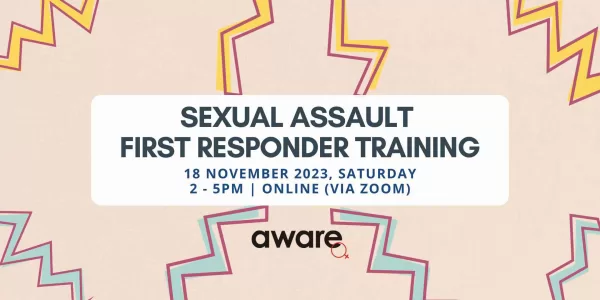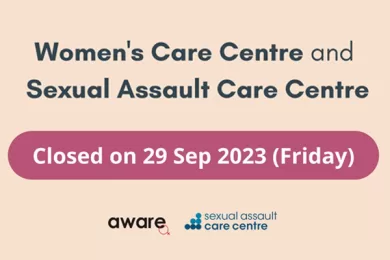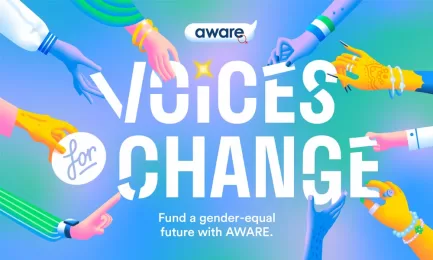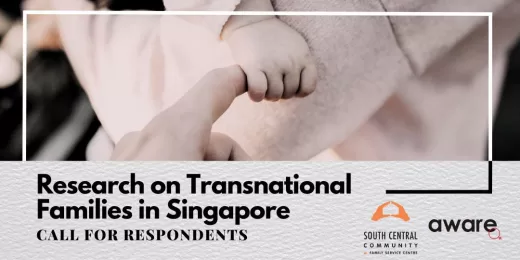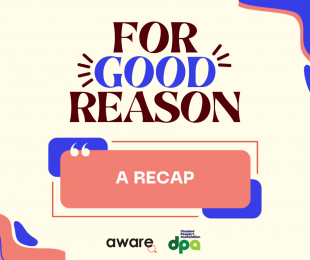
On August 17 2023, around 50 people attended a virtual event titled ‘For Good Reason: A Panel on Workplace Accommodations’ to discuss how companies can create policies to help all individuals thrive and how such inclusive measures in turn benefit the companies.
Organised by the Disabled People’s Association (DPA) and AWARE, the session was moderated by Anthea Ong, a mental health advocate, social entrepreneur, and former NMP. Joining her on the panel were AWARE Executive Director Corinna Lim; DPA Research and Policy Manager Max Soh; Head of DEI, APAC at Mediabrands, Dharesheni Nedumaran; and Yap Qian Yin, a business analyst and former Paralympian.
The panel discussion was contextualised within the Ministry of Manpower’s recent acceptance of the Tripartite Committee’s recommendations for the Workplace Fairness Legislation (WFL). The panellists acknowledged this as a step in the right direction, though they pointed out some remaining gaps which will still leave certain groups of workers vulnerable.
Notably, the WFL only outlines the right for employees to request reasonable accommodations for disabilities, of which there is a stringent definition. An upcoming Tripartite Advisory, which will have no legal authority, will be in charge of monitoring any other worker’s right to reasonable accommodations. The question arises: How can workplaces facilitate reasonable accommodation requests to get the best out of a company’s workforce?
The necessity of reasonable accommodations in the workplace
According to the International Labour Organisation, reasonable accommodations refer to ‘any modification or adjustment to a job or to a workplace that is reasonably practical to enable [employees] to have access to, participate in, or advance in employment’.
The panellists had a robust discussion built upon this definition. From Max’s perspective, reasonable accommodations were “essential modifications for individuals, not just persons with disabilities, to do work effectively”. Sharing his experiences as a legally blind person, he emphasised that any individual could face different barriers that impede their work capabilities.
Corinna further highlighted that it is not just people with disabilities who are affected. The AWARE director pointed out that the workplace has always been designed for men or those without caregiving responsibilities. Today, reasonable accommodations are key to supporting a wide range of workers, including people with disabilities, caregivers, pregnant women, and older people. It also includes adjustments or modifications to an employee’s role or work environment that can help meet their specific needs.
Similar accommodations have been legislated, with Corinna pointing out that “people don’t think about them as reasonable accommodations, but that is what they are”.
Reasonable accommodations benefit all
Reasonable accommodations are crucial to enabling an environment where employees can perform at their best, which ultimately benefits both employers and employees. For Qian Yin, COVID-19 enabled greater flexibility in the workplace, which she “benefitted greatly as a wheelchair user”. She detailed the importance of access to basic facilities, sharing that she almost turned down the offer from her existing employer due to the lack of a handicapped toilet in her building. As Dharesheni puts it, the point of reasonable accommodations is “to remove those barriers that prevent someone from working”, allowing organisations to have a diverse workforce and fully capitalise on the full extent of their employees capabilities.
An employer who supports reasonable accommodations for their team is also able to exercise effective leadership to deliver better outputs for their company. As Anthea noted, at the core of business and leadership is for employers to “take care of the humans under their charge”.
Reframing the narrative
The panellists agreed that it is time to reframe reasonable accommodations as a gain rather than a cost, as a cornerstone of good leadership rather than overburdening employers. Oftentimes, conversations about reasonable accommodations are underlined by biassed assumptions that someone cannot do the job properly. To Max, the main point to drive home was that “reasonable accommodations are a useful tool; a reasonable accommodation, after all, is not special treatment. Rather, it is the removal of barriers to enable more efficient and productive workflows”.
Another common perceived cost of reasonable accommodations is the potential for abuse, where employees take advantage of employers with their requests. As the panellists discussed, the likelihood of abuse from the employee is slim; these individuals are already dealing with a lot, and there is little to suggest abuse. As Corinna puts it, this argument against reasonable accommodations is “a red herring”.
A gentle approach forward
Employees can advocate for themselves gently yet powerfully. Qian Yin spoke about how she did not “put forward a half fight”; instead, she “put forward entirely what is required”. Corinna agreed, emphasising that employees should “take care of the question marks” so employers can better understand what is required to offer support.
Gathering support from allies in the workplace can also aid in calling out resistance to reasonable accommodations. Qian Yin spoke about how she respectfully advocated for herself in the workplace, sharing her story with colleagues to build momentum towards “a louder voice to push” for a handicapped toilet. Her small victory spoke volumes about the power of sharing stories so workplaces can learn how to better support each other.
From a mindset of resistance to one of support
There are a multitude of ways in which employers can support employees in requesting reasonable accommodations. An effective and visible action is to have an employment policy that can guide employees in making reasonable accommodation requests. This then facilitates an open conversation where employees can request and employers can negotiate.
Having conversations about reasonable accommodations should be an interactive process that culminates in a shared agreement. Dharesheni stated that employers can have a policy that tracks whether reasonable accommodations are effective for them. Anthea added that having open conversations does not mean a floodgate is being opened. Rather, it’s about operating from a mindset of diversity and inclusion instead of discrimination.
The panel considered the difficulties encountered in offering reasonable accommodations for individuals with invisible disabilities. Anthea acknowledged the challenges that employers may face in accommodating different needs. In response, Max emphasised that reasonable accommodations should be approached on a case-by-case basis in a manner that does not “compromise the nature or output of the work”. Flexibility in these conversations is essential to “human-centred” leadership that recognises the unique needs of each employee.
Max also highlighted that there are organisations that can support workplaces in implementing reasonable accommodations, such as funds and grants which can cover financial costs involved in providing reasonable accommodations. There are also considerable resources available from organisations such as AWARE and DPA so employers “don’t have to go in alone”.
The next reasonable step
While legislating reasonable accommodation seems out of scope currently, the panel acknowledged that the next big fight will lie in legislating policy changes. In the meantime, the conversation certainly does not end here. We must continue to push as a community as we enter this new era of workplace fairness.
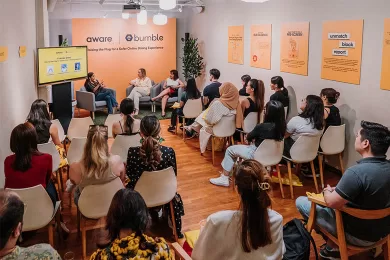
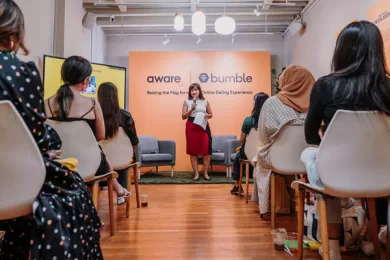 One in four of the clients who came to AWARE’s Sexual Assault Care Centre (SACC) in 2021 did so as a result of having been the victim of TFSV.
One in four of the clients who came to AWARE’s Sexual Assault Care Centre (SACC) in 2021 did so as a result of having been the victim of TFSV.



